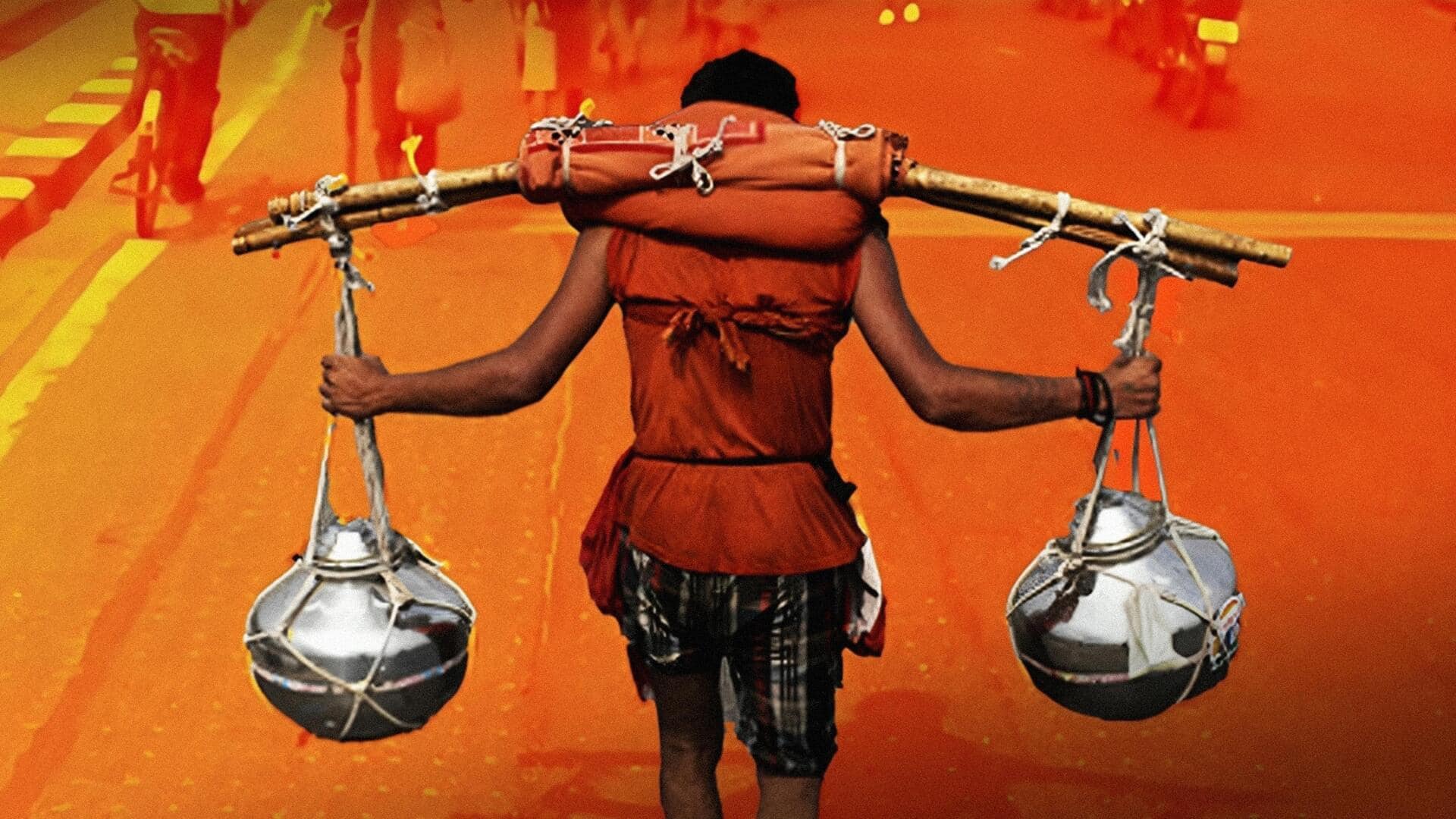
Route, schedule, controversy: Everything about Kanwar Yatra
What's the story
The Kanwar Yatra began on Monday with the start of the Hindu month of Sawan. This annual pilgrimage is undertaken by devotees of Shiva in which they travel to Hindu sites to collect the Ganges river water and then offer it at local shrines or temples. This year—ahead of the yatra—a controversy arose over a Uttar Pradesh government order requiring all shops along the route to prominently display the names of their owners. Here's what we know about it.
Details
What is Kanwar yatra
During the pilgrimage Kanwariyas visit key Hindu sites like Haridwar, Gaumukh, Gangotri, and Ajgaibinath to collect holy water from the Ganges. They carry this water for miles to offer it at Shiva shrines or temples such as Pura Mahadeva, Augharnath, Kashi Vishwanath, and Baidyanath. Devotees believe that presenting Ganges water to Lord Shiva during the month of Sawan brings significant blessings. The yatra will conclude on Tuesday, August 6, 2024.
Routes
Popular Kanwariya routes
Here are the popular Kanwariya routes: Haridwar Route: Devotees travel from Haridwar to places like Neelkanth Mahadev Temple in Rishikesh or Pura Mahadeva Temple in Baghpat, Uttar Pradesh. Gaumukh Route: Pilgrims collect sacred water at Gaumukh and carry it to their destinations. Gangotri Route: Starting at Gangotri, devotees transport water to temples like Kashi Vishwanath in Varanasi or Baidyanath Dham in Deoghar, Jharkhand. Sultanganj-Deoghar Route: Devotees gather Ganga water at Sultanganj and travel 105 kilometers to Baidyanath Temple in Deoghar.
Anxiety spreads
Traders express concern over new government directive
Last week, the Yogi Adityanath government mandated that shops and eateries along the Kanwar Yatra route display the names of owners and employees. Initially enforced in Muzaffarnagar, this order has now extended to Shamli and Saharanpur districts, covering the entire Kanwar route. This directive has raised concerns among local traders, particularly from minority communities, who worry that displaying their shop's name might deter customers.
Broader implications
Political, social debate sparked by new directive
Following UP's lead, Uttarakhand Police also released a set of directives for food establishments along the paths of the Kanwar Yatra. Separately, the UP government's order also spurred a broader political and social debate. Bharatiya Janata Party MLA Kapil Dev Agarwal defended the directive, saying, "There is nothing wrong with this order. Some establishments use Hindu names while their owners are Muslim. We have no objection to that. The problem arises when they sell non-vegetarian dishes."
Political backlash
Opposition hits out at UP government
Meanwhile, opposition leaders have accused the Yogi government of indulging in narrow politics with a clear aim to sideline a particular community. Samajwadi Party chief Akhilesh Yadav labelled it as a "social crime, while All India Majlis-e-Ittehadul Muslimeen chief Asaduddin Owaisi likened it to apartheid and Nazi-era practices.
Details
Allies demand rollback of order
Notably, the BJP's allies, the Janata Dal (United), Lok Janshakti Party (LJP), and Rashtriya Lok Dal (RLD), have advised the Adityanath-led UP government to reconsider the decision. The decision is "communally divisive and unconstitutional", said Ramashish Rai, state president of the RLD, the BJP's only ally in western UP. The RLD has nine MLAs in UP, of which two are Muslims.
Details
Here's what NDA allies said
Union minister and National Democratic Alliance partner Jayant Choudhary demanded a roll back on it or at least the government should not push on implementation of the "nameplate" order. Additionally, JD (U) General Secretary KC Tyagi said that though a bigger Kanwar yatra takes place in Bihar and Jharkhand, no such order was in effect. Union Minister and Lok Janshakti Party President Chirag Paswan also opposed the UP police advisory.